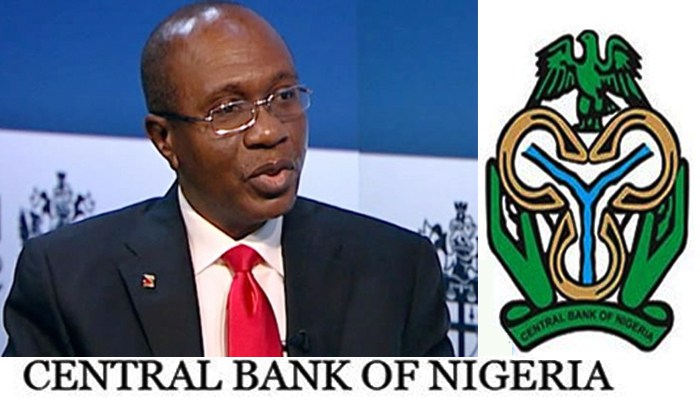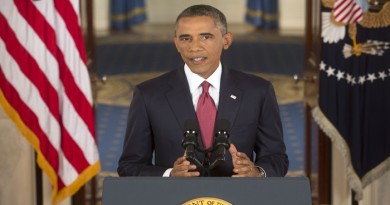Forex liberalization, five months after
The launch of the liberalized interbank forex market by Central Bank of Nigeria (CBN) on June 20, 2016, had come with several hope that it would attract foreign inflows, more so that the move would boost liquidity in the market. But in spite of all these expectations, the much expected ‘foreign inflows’ has not hit the level it was targeting even as the apex bank has just recently given approval to Travelex, a global foreign exchange dealer to commence the disbursement of forex to the BDCs firms. Experts have therefore said that unless liquidity improved, the local currency is likely to suffer further depreciation. NIYI OLAOYE writes.
Introduction
When the CBN introduced the liberalized interbank forex market on June 20 2016, there were various reactions from different corners.
Business247 News Online notes that market operators both in Nigeria and abroad had expected that this would attract foreign inflows, and that the move would boost liquidity in the market. Many had believed that liquidity was going to be there for the market and the people who had been holding off were now going to appear’. However, recently, CBN eventually gave approval to Travelex, a global foreign exchange dealer, to commence the disbursement of forex to the BDCs firms in Nigeria. The dollar inflow, being disbursed by Travelex, is part of the country’s Diaspora remittances estimated at $21bn annually.
Business247 News Online gathered that the development, which was an improvement over the initially approved $10,000 weekly, would deepen dollar liquidity in the system and strengthen the naira against the dollar.
But financial experts still believe that five months after the liberalized interbank forex existence, much have not yet been seen of the market as the current foreign inflow, is yet to reach the level many had expected it to reach.
It will be recalled that two months ago, the CBN had directed banks to sell proceeds of their international money transfer services to BDCs. This was in a bid to address the steady and sharp depreciation of the naira in the parallel market.
Business247 News Online investigation, however, revealed that most of the banks were not complying with this directive, preferring to do brisk business with the proceeds. This generated several complaints from the BDCs, with the Association of Bureaux De change Operators of Nigeria, (ABCON), calling for a review of the policy measure.
In a provided data by FBNQuest, foreign investors were yet to bring in significant inflows since the take off of the liberalized forex market in June. The firm stated: “The success of the new regime hinges upon sizeable autonomous inflows to supplement the CBN’s. The Financial Markets Dealers Quotation (FMDQ) website had shown open futures contracts of $2.9 billion through to August 2017.
The portfolio community has shown its hand, “although Nigerian corporate has probably been the larger players.” It also noted that the widely reported sale by Citibank of $270 million on 29 August for the purchase of longer tenor Nigerian Treasury Bills (NTBs) by its offshore clients has not triggered the re-entry of offshore investors in large numbers.
These analysts pointed out that lack of liquidity in the market has worsened the forex shortage in the system and resulted in the naira weakening on the parallel market.
In fact, with FBN Quest also providing data showing that the CBN’s gross official external reserves declined by $790million in August on a 30-day moving average basis to $25.4billion.
This medium gathered that the consensus among analysts is that unless liquidity improved, the local currency is likely to suffer further depreciation.
However, financial analysts believe that the CBN’s chances of luring foreign investors would depend to a great extent on the type of decisions that it takes at the end of its MPC meeting next month.
According to financial analysts, the reluctance of foreign investors to re-enter the Nigerian market in large numbers is due to concerns over the country’s economy.
Expert’s worry
Latest figures released by the National Bureau of Statistics (NBS) show that the economy contracted 2.06 per cent in the three months to the end of June, worse than analysts expected, while inflation hit an 11- year high of 17.1 per cent, underlining the depth of the country’s crisis.
Commenting on the NBS data, Africa Economist at Capital Economics, John Ashbourne, said: “What strikes me is the breadth of sectors where things have gone terribly wrong. Across the board, it is popping up red. This is a wake-up sign that a lot of the non-oil sector policies, like foreign exchange controls, have not worked.”
Expectation from experts
Managing Director and Chief Economist Africa, Standard Chartered Bank, Razia Khan, in her reaction to the introduction of the liberalized forex market, had stated: “Our projection is for Nigeria’s Current Account (C/A) deficit to widen further near-term.
Falling oil output will be a key source of stress on C/A receipts. Even with currency flexibility, this is unlikely to be fully compensated for by other inflows, at least in the near term. Nigerian FX reserves will likely remain pressured. More will be needed to boost confidence in the new FX regime, ensuring its workability.”
Business247 News Online recalls that the Managing Director/ Chief Executive Officer, Sterling Bank, Mr. Yemi Adeola, at an interactive session with journalists last December, had said that the slowdown in the economy, coupled with the regulatory headwinds that banks were grappling with, had provided opportunities for another round of consolidation in the industry.
Specifically, he said Sterling Bank was open to merger or acquisition talks to build scale and cut costs in order to counter weak market conditions caused by slow economic growth. He said: “For us at Sterling Bank, we are always open to mergers or acquisitions; we are open to anything that can give us scale, we will pursue.
Whether it is a merger or acquisition, we are open, but the synergy must be there. We must see the benefits clearly. Any merger must be one that ensures stakeholders will benefit more; otherwise, it will not be worthwhile.”
He revealed that one or two foreign banks had held discussions about possible acquisitions in Nigeria, predicting: “You could see a combination of one or two international banks taking over one or two Nigerian banks or merging with them from the look of things.”
Indeed, a few weeks after the Sterling Bank CEO’s statement, Reuters reported the lender’s Chief Financial Officer, Abubakar Suleiman, as saying that the lender was seeking to buy one or two mid-tier banks. According to the report, Suleiman said that sharp falls in the value of the naira and increased regulatory pressure were forcing banks to recapitalize.
He added that the mid-tier bank expected a further 20 per cent devaluation in the naira, which will erode capital ratios for several of its rivals, exposed to foreign currency assets, thereby triggering mergers.
But many still believes that the dollar inflow, being disbursed by Travelex, is part of the country’s Diaspora remittances estimated at $21bn annually. The development, which was an improvement over the initially approved $10,000 weekly, is said to deepen dollar liquidity in the system and strengthen the naira against the dollar.
CBN’s efforts
It is clearly in a bid to prevent this from happening that CBN has lately introduced additional measures to boost liquidity in the market. In a circular it issued last month, entitled: “Portfolio investment in Nigeria-Re: Amendment of Memorandum 21 of the Foreign Exchange Manual” CBN said Nigerians and foreigners who bring in funds through authorized dealers could invest such funds in money market instruments, bonds and equities.
According to the circular: “… The provision of memorandum 21 of the foreign exchange manual on the subject is hereby amended as follows: A resident/non-resident Nigerian national and/or entities and foreign national or entity may invest in Nigeria by way of purchase of money market instruments such as Commercial Papers, Negotiable Certificates of Deposits, Bankers’ Acceptances, Treasury Bills, etc.”
The apex bank, however, said the investment must meet some documentation requirements including a SWIFT message evidence of the remittance of funds, board resolution of the local beneficiary authorising the investment (in the case of a company) and the stated purpose of the capital importation.
It also stated that prospective investors must appoint a local bank or broker as an agent to purchase the instruments, adding that the funds must be transferred electronically to a designated bank. Furthermore, the CBN emphasized: “For the avoidance of doubt, only funds inflowed through the authorised dealer by resident/ non-resident Nigerian nationals and companies specifically for purpose of investment shall be eligible. Consequently, balances on exports domiciliary and ordinary domiciliary accounts shall not be eligible for the investment.”





1. Thanks for the great post keep up the amazing work.